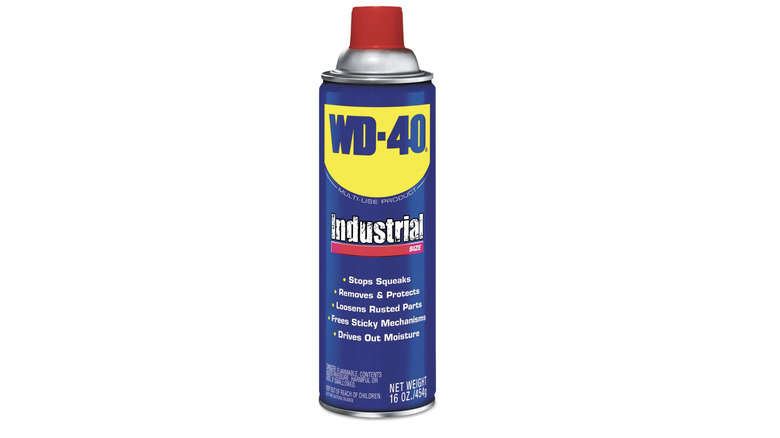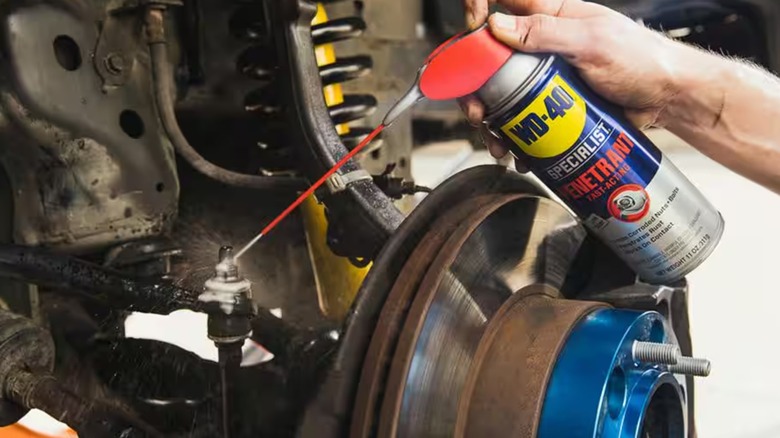WD-40 Vs. Penetrating Oil: Which Should You Use To Loosen Parts?
We may receive a commission on purchases made from links.
Let's say you've got an old nut stuck completely flush to an equally old bolt. It's really screwed on there, to the point that neither hand nor power tools can seem to loosen it. Traditional workshop logic dictates that a quick spritz of WD-40 will loosen things up and get that nut spinning again. This will usually suffice, as WD-40's well-documented lubricating prowess is a well-regarded solution for rusted components. However, if the nut and bolt are very old and oxidation has taken its toll, WD-40 may not be able to get deep enough to loosen them.
In this case, it's time for a different workshop fluid to step in: penetrating oil. When rust is too thick and solid for WD-40 to break through, penetrating oil uses a thinner formula to work its way into deep corrosion and begin breaking it down. To quickly clarify, when we say "WD-40," we're referring to the WD-40 Multi-Use Product. This is the sprayable lubricant that most tinkerers recognize as WD-40, but the brand makes a few different products, including penetrating oil. PB Blaster and Kroil also make highly-rated penetrating oils.
Penetrating oil is for severely stuck, rusted components
Penetrating oil — also known simply as penetrant — is similar to WD-40's Multi-Use Product in a few ways, but has a few key differences. In addition to lubricating agents, penetrants usually contain a cocktail of reactants and solvents. These additives don't just loosen up corrosion like rust, they help to dissolve and remove it entirely. Additionally, penetrants often have a slightly lower viscosity than WD-40. In other words, they're a little less goopy, and flow more easily through tight passages into trouble spots.
Where WD-40 may be stopped dead by sufficiently thick corrosion, penetrants are able to work on fasteners that are very heavily oxidized. If you've got a part that doesn't seem to be responding to WD-40's multi-use product, a penetrant would be the next option to try. As we mentioned above, WD-40 Specialist Penetrant is one good choice, as is Lucas penetrating oil. One advantage to using WD-40 is that it flushes out moisture — the WD stands for Water Displacement — helping prevent rust buildup in the future.

